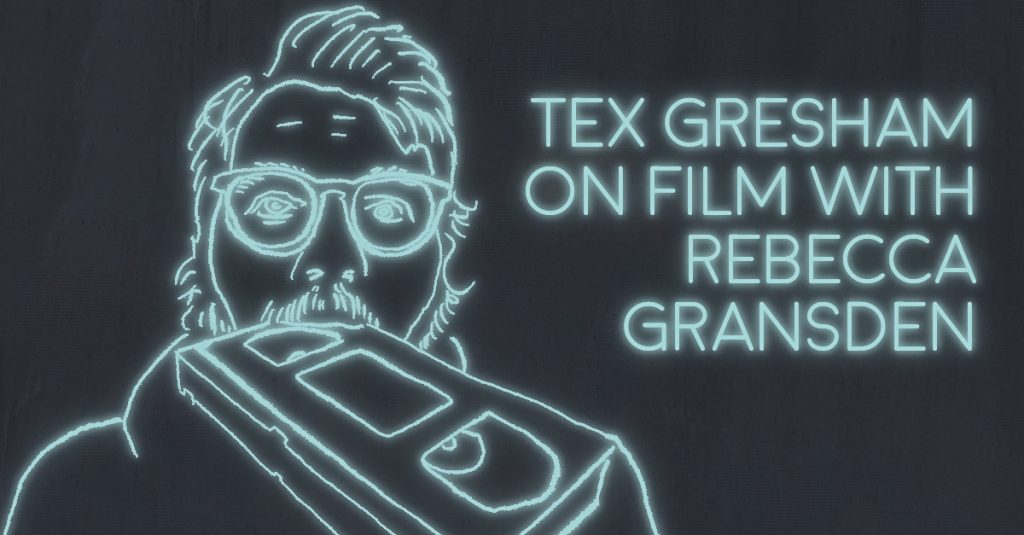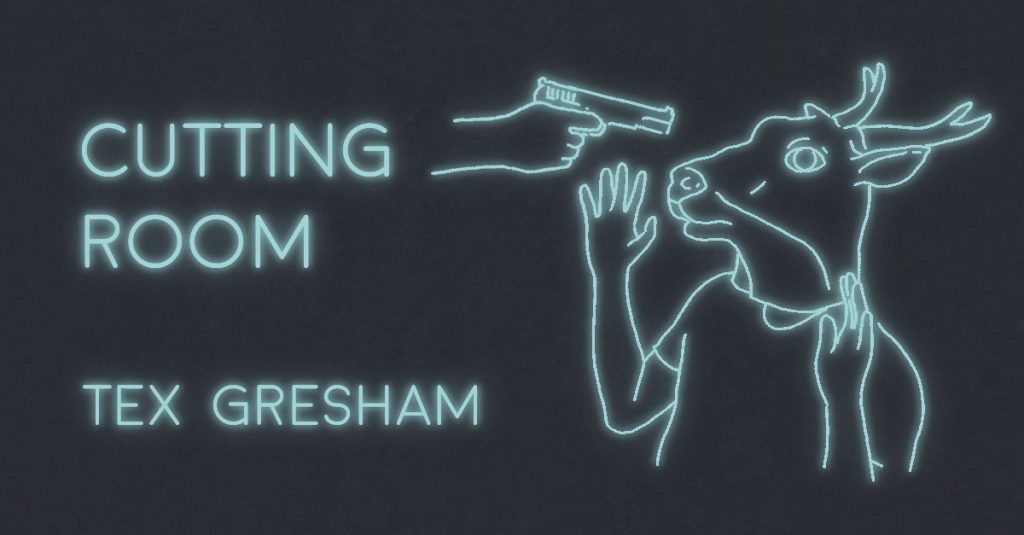
TEX GRESHAM on film with Rebecca Gransden
What film, or films, made the first deep impression on you? This might come as a shock, but I think watching E.T. as a kid rewired my brain, changed my DNA, shaped my life’s path. I would rewind the ending over and over and just bawl my eyes out as the ship made a rainbow across the sky. I wasn’t just sad—it was joy as well. And I didn’t understand how I could have two feelings at the same time, and how this movie could do that to me. Very often film is one of the ways we first come…


